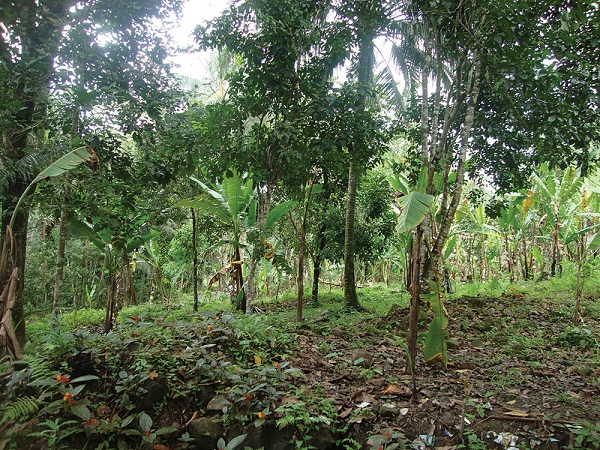Forest deal changes lives of ‘kaingineros’

TONGONAN Farmers’ Association members also plant bananas in between the trees to augment their income. JOEY A. GABIETA
Most people in the mountain village of Tongonan in Ormoc City have given up the ways of the “kainginero” (slash-and-burn farmers) to become forest guardians.
“We realized that engaging in ‘kaingin’ would not help us in the long run. We cut our trees without regard and without any thought of replanting again,” Romula Regala, 54, said.
More than 100 villagers are now protecting the forest inside the geothermal reservation of the Philippine National Oil Company-Energy Development Corp. (PNOC-EDC).
Regala recalled that toppling trees used to be second nature to the residents of Tongonan, 19 kilometers from the city proper and home to the country’s biggest geothermal wet fields. The whirrs of chainsaws were normal in the neighborhood, she said.
The fallen trees were used for firewood to be sold or used at home.
Article continues after this advertisementCompany advice
Article continues after this advertisementEverything changed in 1989, when PNOC-EDC officials told the villagers to stop their destructive practice and instead plant trees in the forest reservation.
Heeding the officials’ advice, they formed the Tongonan Farmers’ Association (Tofa) to protect and reforest the 110-hectare area.
Tofa members serve as forest stewards, according to Joselito Paredes, EDC project coordinator. The EDC supplied the seedlings to 47 founding members and agreed to pay each of them P200 daily for planting the seedlings.
Although they are stewards of 1,000 ha in forest reserves, the farmers have used only 180 ha in replanting 216,000 gmelina, mahogany, agoho and mangium seedlings, or 1,200 trees per hectare.
Under the agreement, the farmers may cut trees that are at least 10 years old but they must replace the trees.
The EDC also donated 2.8 ha of rice fields to Tofa members in Barangay Valencia, also in Ormoc, so they could plant palay and sell their harvest while waiting for the trees to grow.
Other crops
Moreover, it provided the organization 71 ha for abaca but Tofa members were able to maintain only 48 ha due to pest infestation. “We are not generating much income because our farm was hit by pests,” said Regala, Tofa vice president.
For extra income, Regala said bananas and other crops were planted in between the trees.
Following the PNOC-EDC agreement, the attitude of the farmers changed dramatically. The number of Tofa members has gone up from 47 to 108.
Regala, one of the original members, explained that Tofa aimed to instill among its members a sense of responsibility and “ownership” of the forests, particularly those inside the geothermal reservation.
Stewardship grant
Tofa has been awarded a community stewardship agreement by the Department of Environment and Natural Resources (DENR) entitling its members to plant and cut trees for commercial purposes. The application was made in 1989 but the permit was released two years later.
The group made its first harvest in 1999, or 10 years after they applied for stewardship. They were able to cut 264,400 board feet of lumber and earned more than P600,000.
Each member received more than P2,000 after paying the DENR 25 percent of its profit and 3 percent to the Bureau of Internal Revenue (BIR), as stipulated in their stewardship agreement.
In 2011, Tofa members received more than P3,000 each from the second harvest. They were able to sell 400,000 board feet of lumber at P800,000.
The group is now selling lumber to companies in Ormoc and Kananga town in Leyte, as well as Cebu, Regala said.
“The money that we generate is really a big help to us,” said Celestino Buera Jr., Tofa president.
Financial security
Benjamin Borromeo, 49, said that being a Tofa member not only gave him a sense of pride as “owner” of the trees but helped his family earn a living as well.
He said he would till half a hectare of rice field but could earn only P3,000 per harvest, which happens twice a year. The amount, he added, was not enough to provide decent living for his wife and eight children.
But as a Tofa member, he could earn as much as P10,000 from the sale of palay and other crops, as well as from performing jobs for the EDC. He also serves as a machine operator for Tofa.
Like Borromeo, Elenita Potoy, 45, said Tofa provided her a sense of financial security. “Before, we were afraid to send our children to school because we don’t have money,” she said.
“Now, it’s different. We can somehow afford it. My children can at least finish high school and, God willing, college, unlike their mother who managed to finish only the elementary level,” said Potoy, Tofa auditor.
Regala said that with their commitment to plant trees, the villagers were giving assurance that the forests would be protected for the next generation.